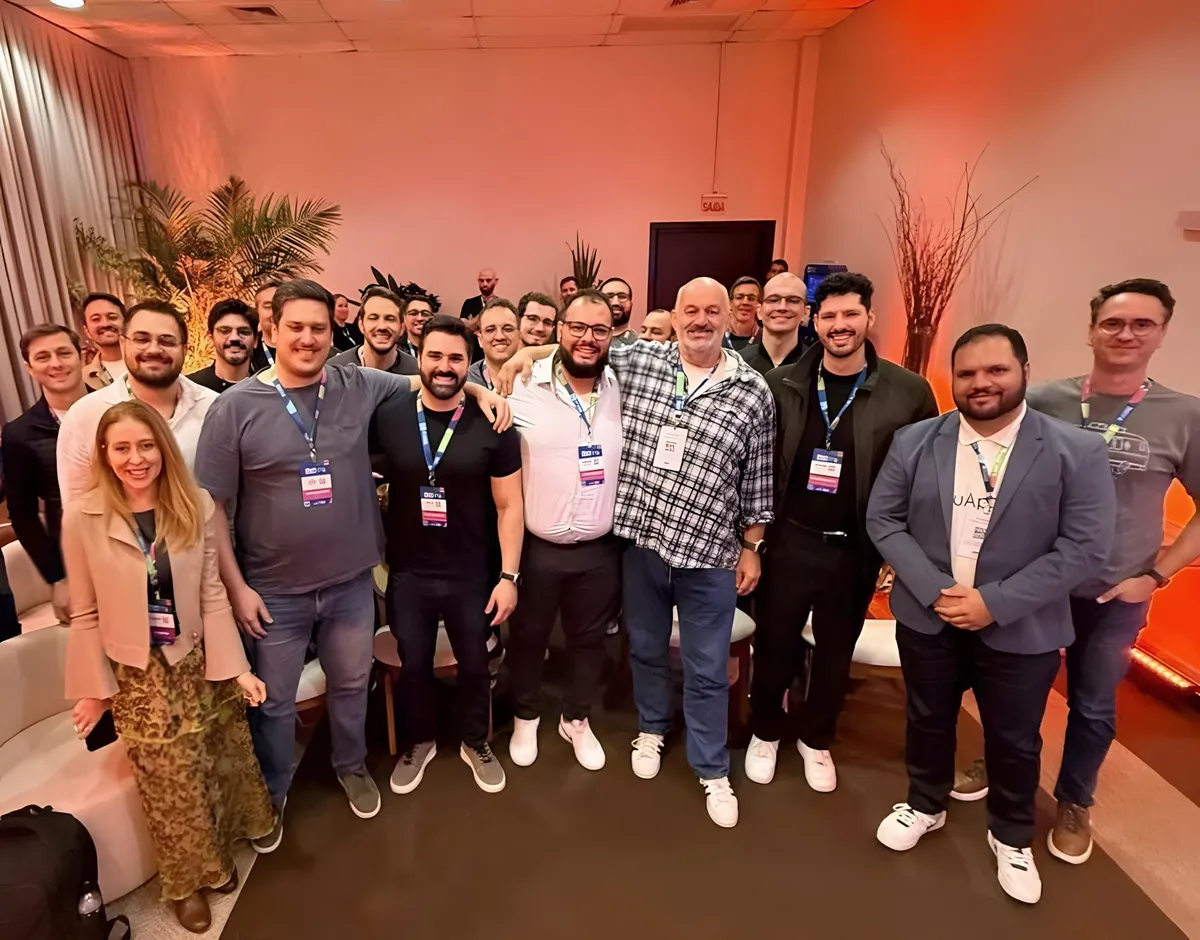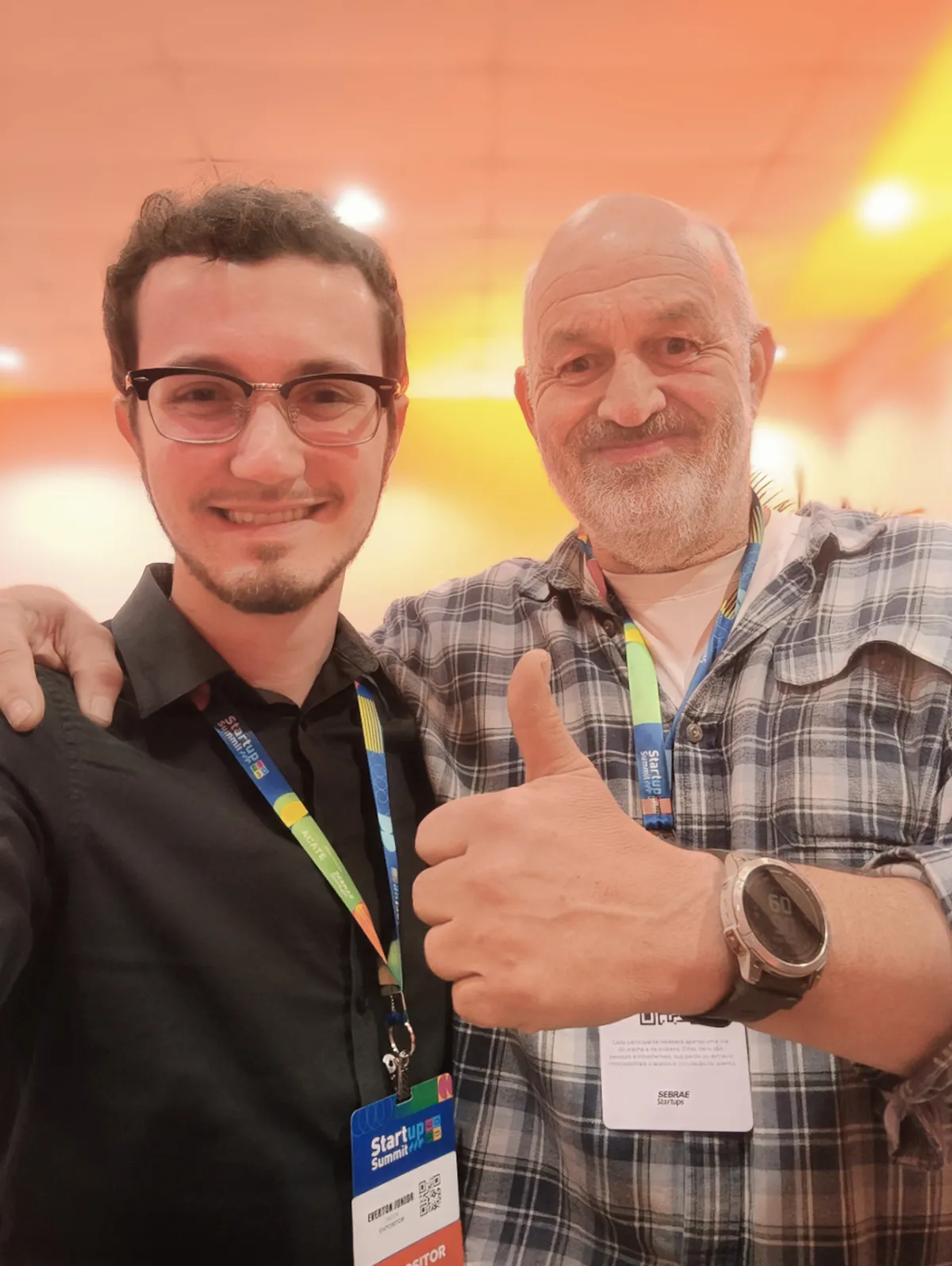I sat down with Werner Vogels
A few days ago, I had the surreal experience of joining a private fireside chat with Werner Vogels, the CTO of Amazon, during Startup Summit 2025 in Florianópolis. It's one thing to follow his talks online – it's another to be in the same room, listening to him unpack two decades of lessons from building some of the most critical infrastructure on the internet.
Werner is sharp, real, and doesn't sugarcoat. What follows is a distillation of the ideas that hit me hardest.
- Solve Problems, Not Hype
Werner didn't flinch: "There are no magic technologies." He recalled how, five years ago, everyone wanted to "do something with blockchain." Now, it's generative AI. His point was simple – you should be driven by a problem, not by FOMO. Most use cases asking for a blockchain can be handled by a simple immutable ledger. Most uses of Gen AI? Not needed. Don't chase tech for its own sake.
- Plan for Failure, Not Perfection
At Amazon's scale, every 9 you add to availability costs millions. So the real art lies in deciding what can fail. Classify your systems: Tier 1 (can never go down – checkout, search), Tier 2 (can degrade a bit), and Tier 3 (can disappear and no one will care). Not everything needs 99.999% uptime. Trade-offs are the game.
- Reversible vs. Irreversible Decisions
This one's gold. According to Werner, good decision-making starts with this split:
Reversible decisions (two-way doors): move fast. 70% of the info is enough.
Irreversible decisions (one-way doors): slow down. Think deeply.
You don't need perfect data to start – unless you're making a bet you can't walk back from (like a public API or a core product shift).
- Security > Operations > Cost
This was his framework for tech leadership:
Security: never an add-on. Bake it in from day zero.
Operations: software lives longer in production than in dev. Build for maintainability.
Cost: design not just for scale-up, but for scale-down. Many forget this, especially in startups.
- AI Gives Us Time Back – That's the Real Magic
To Werner, the biggest impact of AI isn't flashy – it's freedom. AI tools (from copilots to automation systems) should remove the boring, repetitive tasks so we can focus on the stuff that matters: building great products, understanding our customers, thinking clearly.
But none of this replaces engineering fundamentals. You're still responsible for what your software does. No AI will be blamed for a broken compliance rule.
- Build Only When You Can't Buy – But Own the Long-Term
One of the best anecdotes came from Amazon's early days. After a million-dollar outage caused by an Oracle DB bug, Werner's team realized that 90% of their DB usage was just key-value lookups. So they built their own system. Not because it was cool – but because no vendor could solve it at their scale.
It's not about building everything. It's about owning the parts that are critical and painful if outsourced.
- What You Build, You Run
DevOps at Amazon isn't just theory. If you build a service, you carry the pager. You get woken up when it breaks. This tight feedback loop ensures engineers stay close to the real impact of their code. It's not just about uptime – it's about empathy, ownership, and learning fast.
- Cost Isn't Boring – It's Survival
One lesson that applies to any startup: visibility changes behavior. Werner shared how teams at Amazon – and even startups like Nubank – track AWS costs in real time on public screens. That awareness makes cost a product discussion, not a finance afterthought.
- AI Is Not Magic – It's a Compiler
Gen AI won't save you. But it can accelerate you. It helps junior devs onboard faster. It helps sift through logs. It helps update legacy code. But it's not thinking. It's remixing. And you're still on the hook for the consequences.
Werner's advice: stay curious, stay responsible. AI is a powerful tool, not a replacement for good engineering.
Final Thought
At the end of the day, the strongest message was this: your most valuable currency is time – and technology should give you more of it, not less.
For a man who helped build the backbone of the internet, Werner's biggest advice wasn't about scale, or servers, or speed.
It was about clarity.
And that's something I'll carry with me long after this summit.

